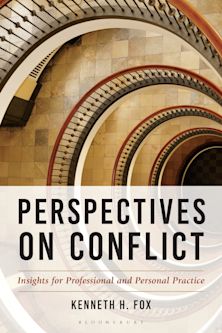- Home
- ACADEMIC
- Politics & International Relations
- Politics - Other
- New Directions for International Relations
New Directions for International Relations
Confronting the Method-of-Analysis Problem
Alex Mintz (Anthology Editor) , Bruce Russett (Anthology Editor) , Karl DeRouen Jr (Contributor) , Hazem Adam Ghobarah (Contributor) , Kristian Skrede Gleditsch (Contributor) , Shaun Goldfinch (Contributor) , William Howell (Contributor) , Paul Huth (Contributor) , Ranan D. Kuperman (Contributor) , Brett Ashley Leeds (Contributor) , Zeev Maoz (Contributor) , Jon Pevehouse (Contributor) , Bruce Russett (Contributor) , Alastair Smith (Contributor) , Allan C. Stam (Contributor) , Ilan Talmud (Contributor) , Lesley G. Terris (Contributor) , Michael D. Ward (Contributor) , Suzanne Werner (Contributor) , Amy Yuen (Contributor)
New Directions for International Relations
Confronting the Method-of-Analysis Problem
Alex Mintz (Anthology Editor) , Bruce Russett (Anthology Editor) , Karl DeRouen Jr (Contributor) , Hazem Adam Ghobarah (Contributor) , Kristian Skrede Gleditsch (Contributor) , Shaun Goldfinch (Contributor) , William Howell (Contributor) , Paul Huth (Contributor) , Ranan D. Kuperman (Contributor) , Brett Ashley Leeds (Contributor) , Zeev Maoz (Contributor) , Jon Pevehouse (Contributor) , Bruce Russett (Contributor) , Alastair Smith (Contributor) , Allan C. Stam (Contributor) , Ilan Talmud (Contributor) , Lesley G. Terris (Contributor) , Michael D. Ward (Contributor) , Suzanne Werner (Contributor) , Amy Yuen (Contributor)
This product is usually dispatched within 3 days
- Delivery and returns info
-
Free CA delivery on orders $40 or over
You must sign in to add this item to your wishlist. Please sign in or create an account
Description
Why does the academic study of international relations have limited impact on the policy community? When research results are inconsistent, inconclusive, and contradictory, a lack of scholarly consensus discourages policy makers, the business community, and other citizens from trusting findings and conclusions from IR research. In New Directions for International Relations, Alex Mintz and Bruce Russett identify differences in methods of analysis as one cause of these problematic results. They discuss the problem and set the stage for nine chapters by diverse scholars to demonstrate innovative new developments in IR theory and creative new methods that can lay the basis for greater consensus. Looking at areas of concern such as the relationship between lawmaking and the use of military force, the challenge of suppressing extremists without losing moderates, and the public health effects of civil conflict, contributors show how international relations research can generate reliable results that can be, and in fact are, used in the real world.
Table of Contents
Chapter 2 The Method-of-Analysis Problem in International Relations
Chapter 3 Four Methods and Five Revolutions
Part 4 New Directions
Chapter 5 International Relations: A Network Approach
Chapter 6 Visualization in International Relations
Chapter 7 The Postwar Public Health Effects of Civil Conflict
Chapter 8 Alliances and the Expansion and Escalation of Militarized Interstate Disputes
Chapter 9 Separation of Powers, Lawmaking, and the Use of Military Force
Chapter 10 Democracies Prefer to Negotiate: Institutionalized Democracy, Diversion, and Statecraft during International Crises
Chapter 11 When Likely Losers Choose War
Chapter 12 Enforcing Peace: Suppressing Extremists without Losing the Moderates
Chapter 13 Are Leaders Susceptible to Negative Political Advice? An Experimental Study of High-Ranking Military Officers
Product details
| Published | Feb 03 2005 |
|---|---|
| Format | Paperback |
| Edition | 1st |
| Extent | 290 |
| ISBN | 9780739108499 |
| Imprint | Lexington Books |
| Dimensions | 226 x 151 mm |
| Series | Innovations in the Study of World Politics |
| Publisher | Bloomsbury Publishing |
About the contributors
Reviews
-
This diverse and innovative collection of studies demonstrates that researchers engaged in the systematic study of international politics are continuing, after forty years of effort, to develop new approaches and to address contemporary issues.
Philip A. Schrodt, University of Kansas
-
An importnat contribution to International Relations scholarship.... will therefore be a useful and welcome addition to courses on methodology in international relations.
2007, Millennium: Journal of International Studies
-
International relations scholars continue to produce inconsistent findings that impede scientific progress and have limited impact on policy makers. This volume provides a superb diagnosis of the problems involved and useful recommendations for overcoming them, along with some highly innovative and multi-method approaches to both new and old issues in the study of international relations.
Jack S. Levy, Rutgers University



































